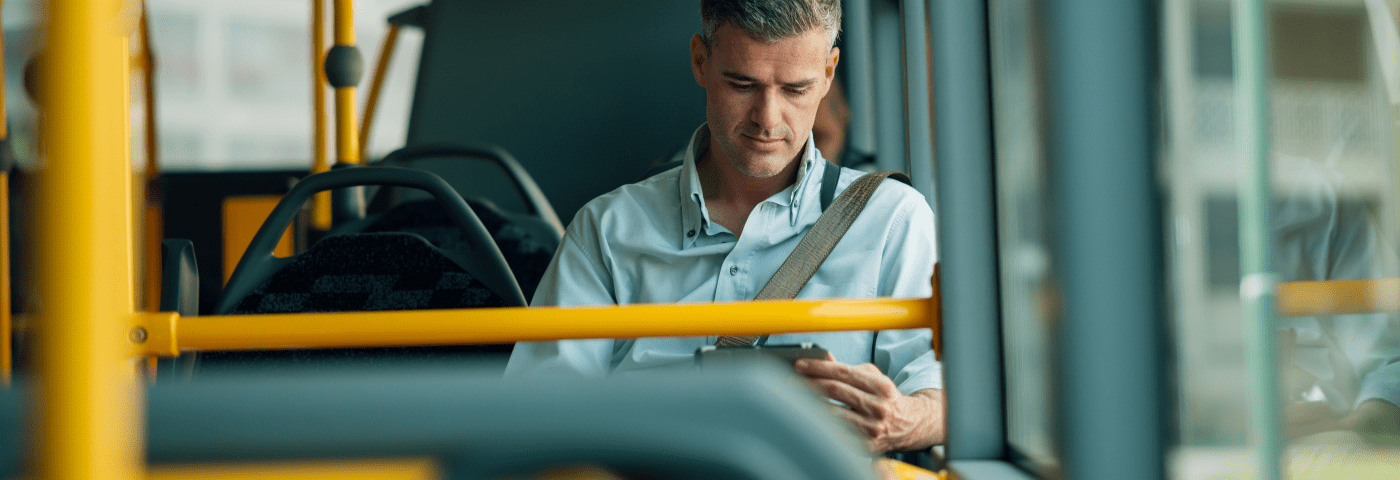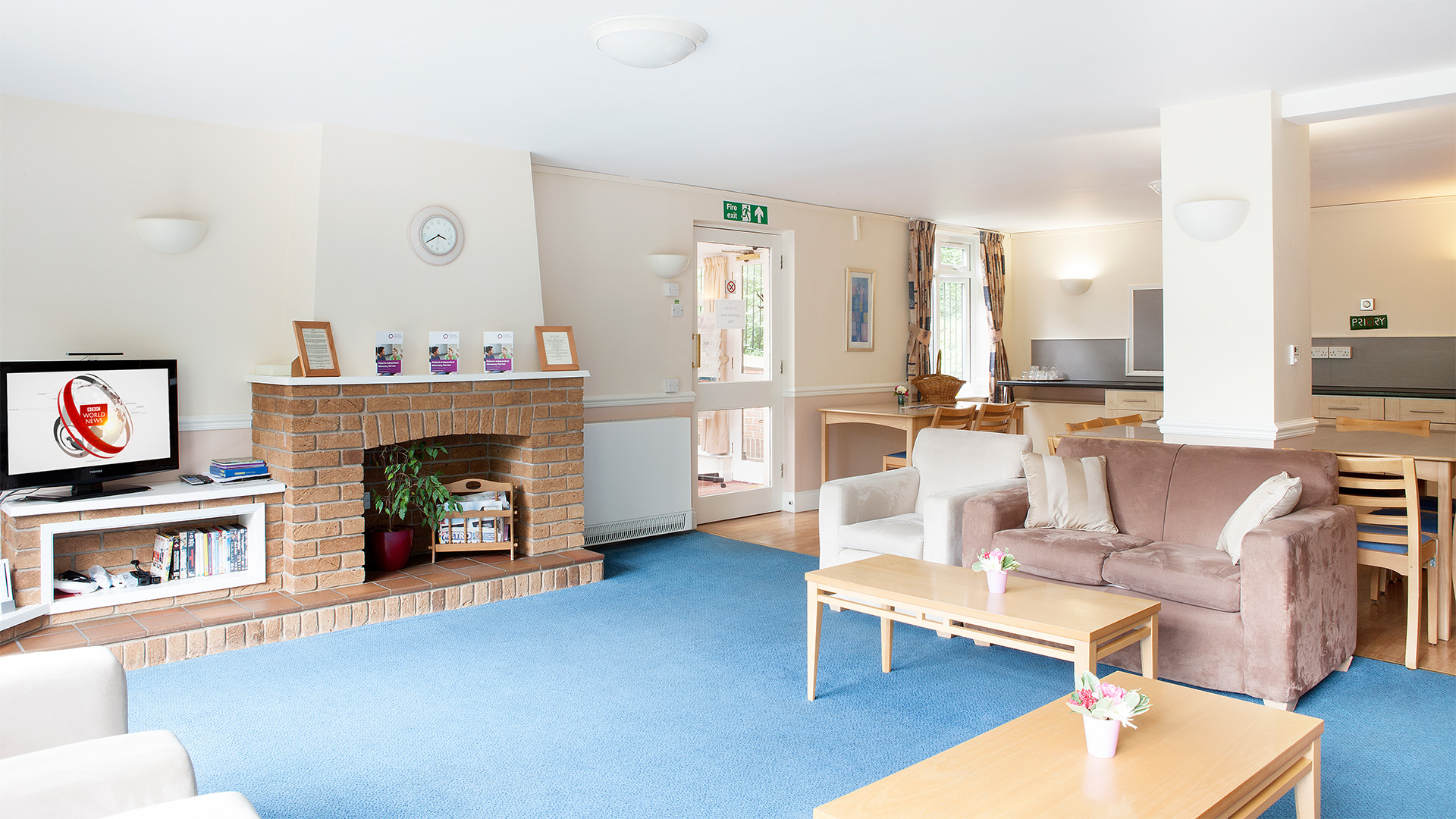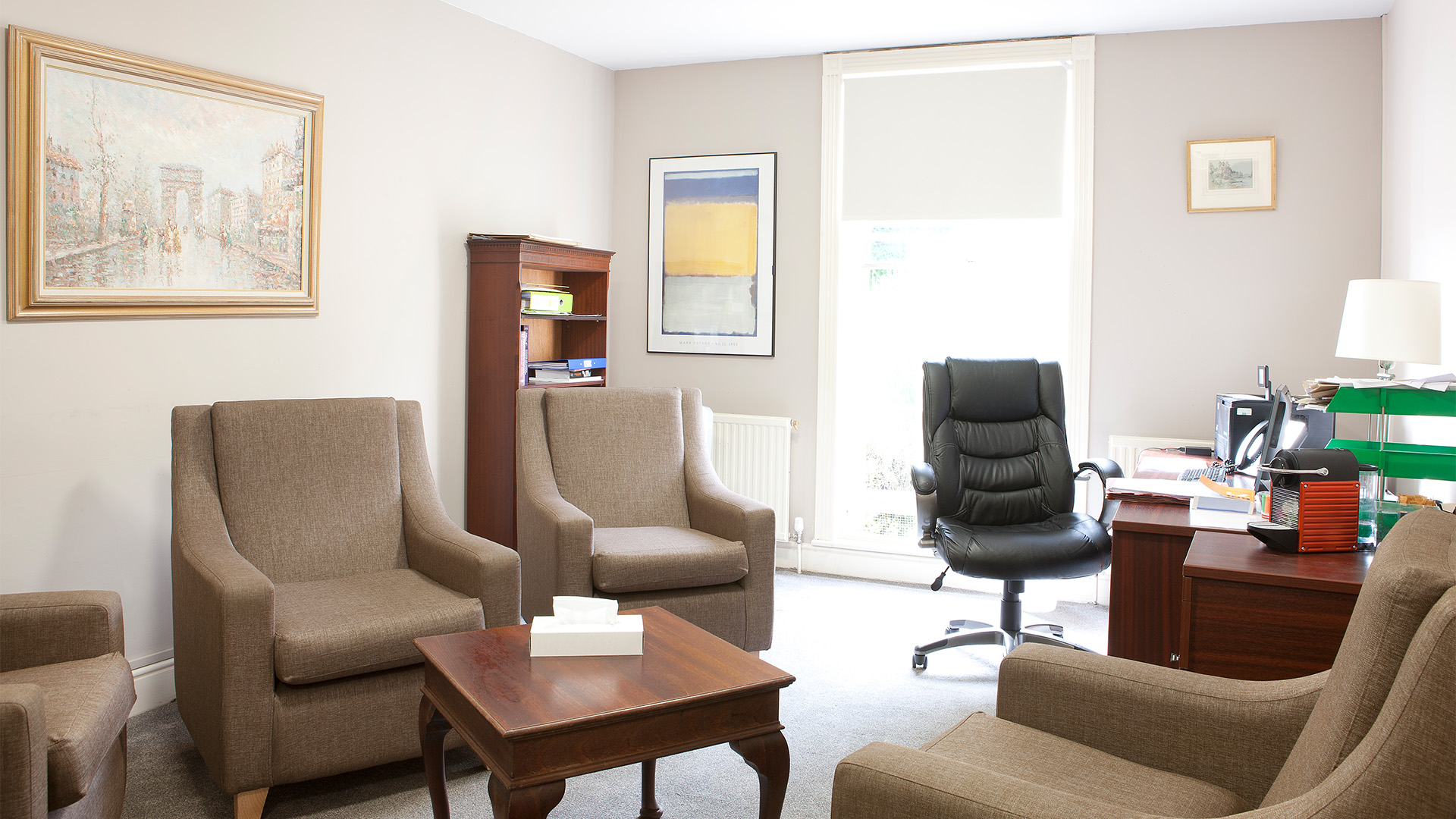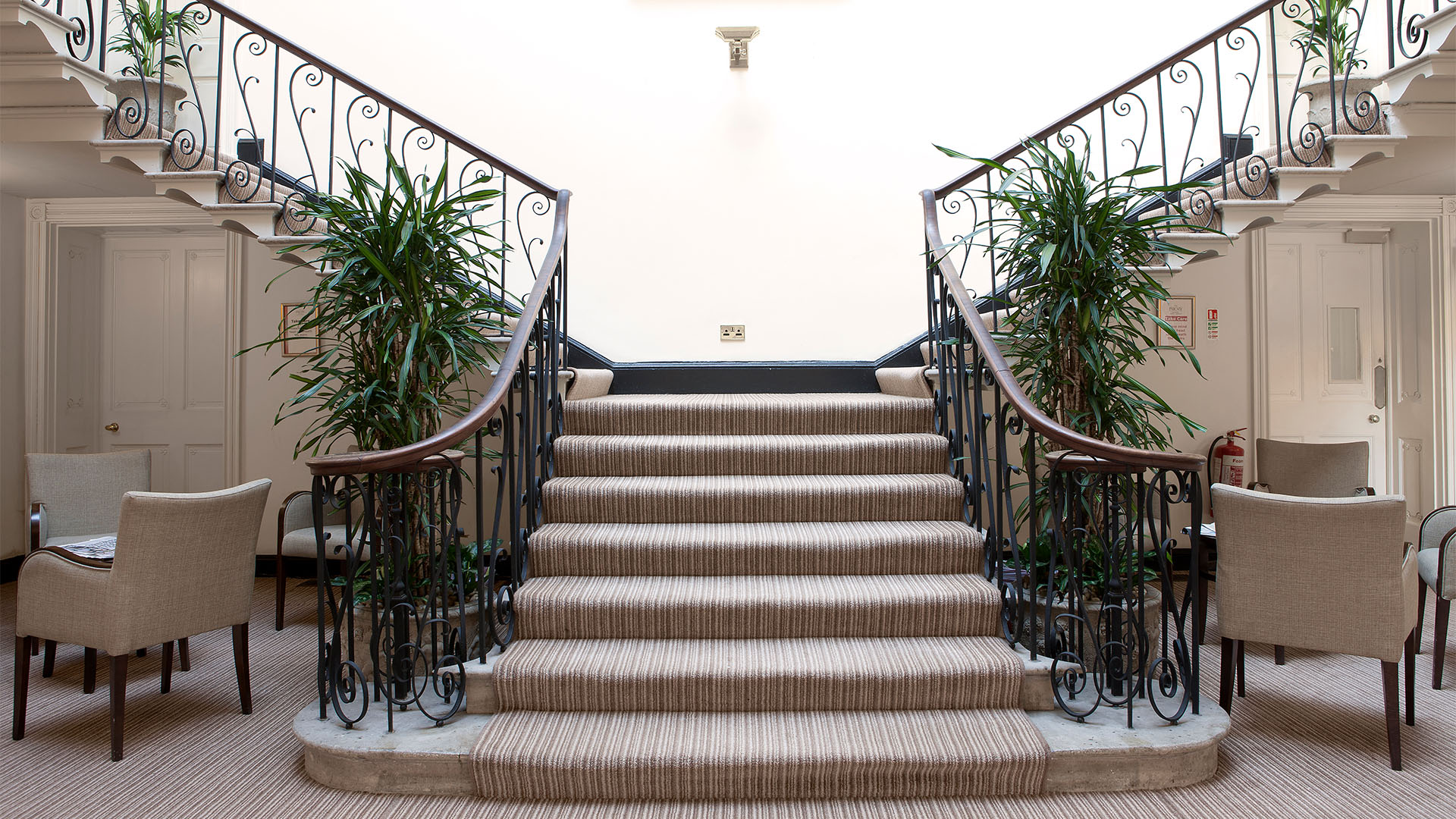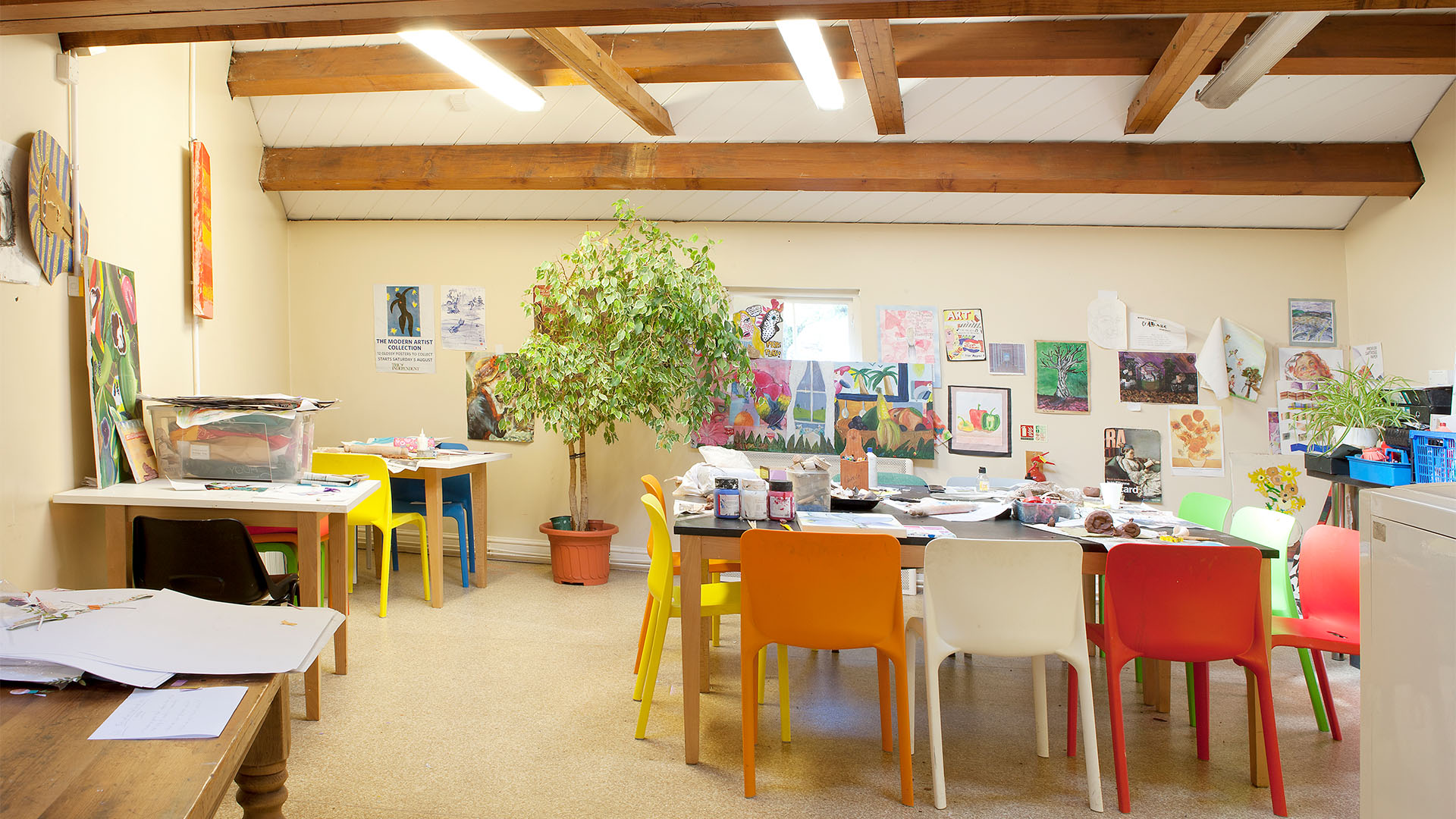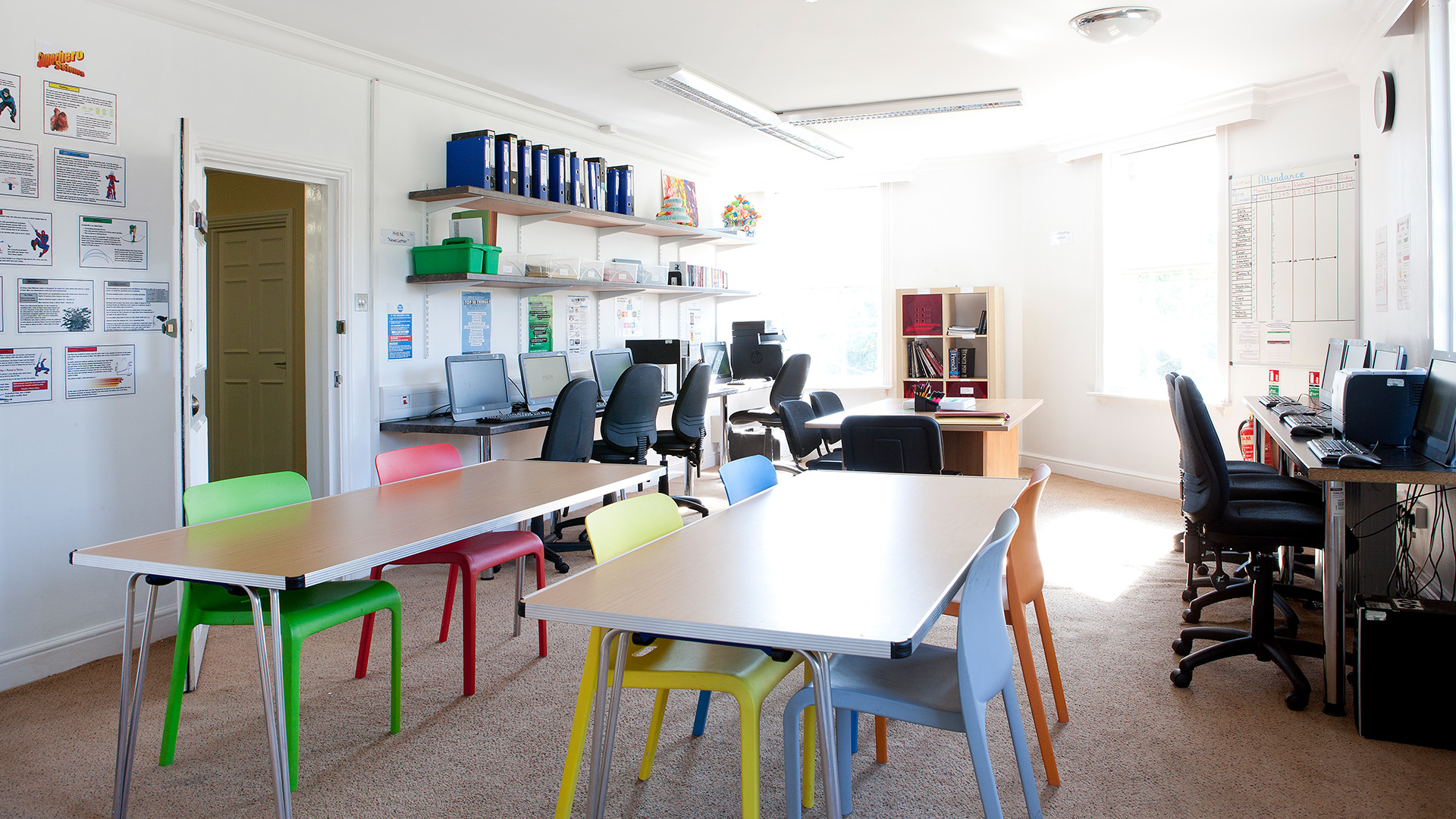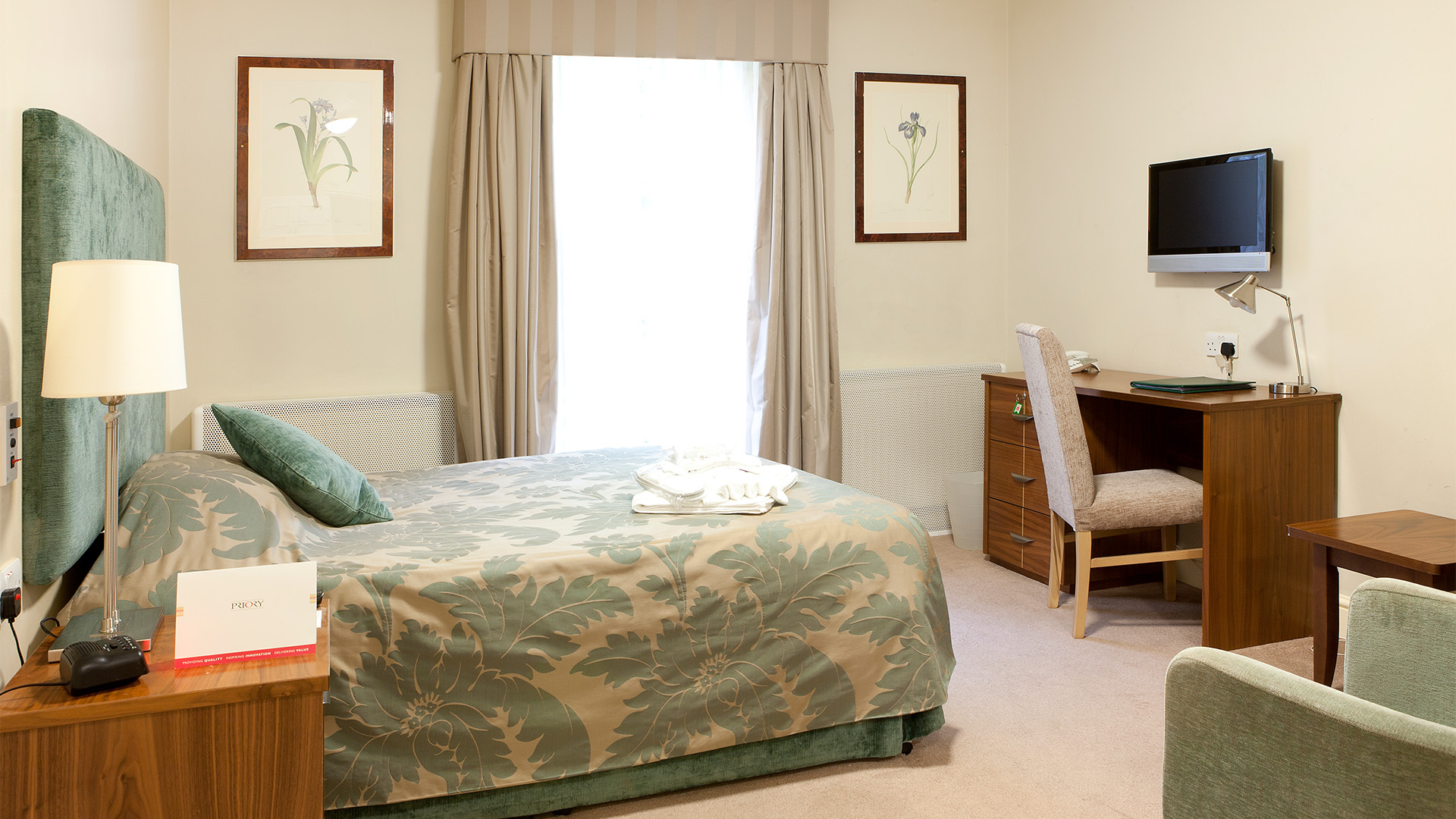About this location
Located in a peaceful and secluded part of Southgate in London, Priory Hospital North London is set within a striking Grade I listed building, overlooking beautiful parklands. It provides 23 beds for adult males and females with mental health needs, including people with obsessive compulsive disorder (OCD) and body dysmorphic disorder (BDD).
Priory’s acute and PICU services aim to allow more people to be treated closer to home and we support the NHS to repatriate out-of-area patients back to local areas.
Services at a glance
Contact us
Click here to enable this content
Services
Our acute services offer round-the-clock assistance in times of emergencies. Our specialist inpatient acute teams are committed to providing the highest quality of care, supporting patients with a wide range of mental health conditions in safe and highly therapeutic environments.
Ward break down
- 14-bedded acute ward for adult males and females
- 9-bedded acute ward for adult males and females
Conditions treated
We can support people with:
- Complex mental health needs
- Personality disorders
- Depression
- Anxiety
- Bipolar disorder
- Psychosis
- Self-harm
- Schizophrenia
- OCD
- BDD
- Violence and aggression
We can also support people with the following challenges alongside their primary diagnosis:
- A learning disability
- Autism
- Physical health needs
- Substance misuse
- Sexual offending
We are able to support informal patients or those detained under the Mental Health Act (MHA).
Treatment approaches
At North London, we offer an individualised, person-centred approach for all of our patients.
Our aim is to ensure that the unique needs of all of the people staying with us are taken into account throughout their treatment. Our programme takes a holistic approach in order to maximise understanding and engagement between our staff and our patients.
Our assessment and treatment options are overseen by a full and diverse multidisciplinary team (MDT).
We offer:
- Dialectical behaviour therapy (DBT)
- Cognitive behavioural therapy (CBT)
- Occupational therapy (OT)
- Art therapy
- Music therapy
Our specialist service for OCD and BDD can accept both adults and adolescents, if their condition is too severe for outpatient treatment, or to help assist with geographical limitations. The treatment programme has been designed to maximise understanding of these mental health conditions and to promote engagement in the early stages of treatment.
People on our OCD and BDD ward receive:
- Up to 3 individual CBT sessions with their key therapist
- Group CBT sessions that are specific to OCD and BDD, including compassion-focused approaches
- Regular monitoring of progress, which is used to audit outcomes
- Complementary groups from the general mental health programme
- Weekly reviews and meetings
- 24-hour nursing support and access to the ward doctor
Therapy may be combined with medication such as selective serotonin reuptake inhibitors (SSRIs), clomipramine or augmentation, to help support CBT and develop more positive outcomes.
People within our acute service tend to stay with us on a short-term basis.
Our team
- Hospital director
- Clinical director
- Psychiatrist
- Ward managers
- Deputy ward managers
- Registered mental health nurses
- Healthcare assistants
- Occupational therapist (OT)
- Psychologist
- Psychology assistant
- Physical health doctor
- Physical health nurse
- Specialty doctor
- Yoga instructor
Therapeutic and community-based activities
We offer a range of therapeutic and community-based activities as part of a full treatment programme. We want to support people to become more confident and independent, preparing them to move through their treatment pathway towards community living.
Our therapeutic and community-based activities include:
- Yoga
- Exercise
- Walks
- Trips out into the community
- Games nights
- Movie nights
- Horticulture
- Basketball
- Mindfulness
- Dynamic breathing exercises
Our facilities and environment
Our bedrooms
All of our bedrooms are single-occupancy and have an en-suite bathroom. Patients are encouraged to personalise their bedrooms while they are staying with us. We have a mixture of standard, and safe rooms, which are allocated depending on needs. We provide:
Exclusion profile
People under the age of 18 and those with a forensic history.
Pathways
Priory’s network of high-quality facilities enables us to offer joined-up care pathways with our dedicated residential services. We offer programmes which integrate healthcare treatment and therapy, which are tailored according to individual needs, in an appropriate setting. Our strength is that we can provide a seamless transition for the individual as they progress between higher and lower dependency services.
People staying with us would be supported to move back to their homes or be signposted for ongoing rehabilitation and recovery (R&R) support, if required. We can support this through our links with wider Priory services.
Priory Hospital North London provides support to people with obsessive compulsive disorder (OCD) and body dysmorphic disorder (BDD).
Our specialist OCD service provides level 6 care pathways where we accept referrals direct from the NHS. We also provide level 5 care (inpatient programme) where individuals can be referred by ICB colleagues.
Who is this suitbale for?
The programme is suitable for:
- Patients presenting with OCD too severe for outpatient therapy
- Patients who struggle to work due to the disability
- For those who have received CBT from community mental health/primary care psychotherapy, with no improvements
- Patients have had inadequate responses to medication
- Patients who require a specialised unit, with full multidisciplinary team
- Psychopharmacological review has been carried out by the specialist consultant
- For those who are ready to accept treatment and fully engage in the programme
Approach
The programme aims to allow more people to be treated closer to home and is delivered in a mix of one-to-one and group sessions. Each patient will receive up to two one-to-one therapy sessions per week, with a BABCP accredited therapist. Cognitive behavioural therapy (CBT) primarily focuses on exposure and response prevention (ERP) and elements of compassion-focussed therapy.
A message from our site leader

At Priory Hospital North London, we provide our patients with every resource they need to make a strong and lasting recovery, and return to a more positive and fulfilling way of life
Priory Hospital North London site leader.
Comments from our patients and their family and friends
The support I received at North London enabled me to open up, accept support and move on to progressing with my life, one step at a time
Information for family and friends
How do home visits work?
We help to arrange home visits on a case-by-case basis, provided it is safe and appropriate for the patient.
What is your visitation policy?
We encourage visits while people are staying with us, and are flexible with visiting times. We do ask that visits are organised around any planned treatment. Depending on your treatment programme and schedule, ward staff will be able to arrange appropriate visiting times.
Will I be involved and kept up to date with my loved one’s care and wellbeing?
Yes, provided it is appropriate to do so. We encourage loved ones to support their family member and be actively involved in their treatment and progress.
Will my loved one be able to have a phone or call me?
People staying with us are allowed to use their own mobile phone and we can provide support for telephone calls, if needed.
What type of things are families expected to provide, and what is provided by the home?
We provide all furnishings and food on-site. People staying with us usually bring clothing, toiletries and essentials. Personalised bedding can also be brought in, if preferred, but we do ask that patients don’t bring in bulky furniture or valuables.
What are the bedrooms like?
Patients will have their own en-suite bedroom, which is comfortably furnished and equipped with a TV. We encourage the people staying with us to personalise their bedroom to make the space feel more comforting, provided it is safe and no damage is caused to the décor.
Are external doors kept locked?
All of our external doors are locked. However, every person staying with us will be individually assessed for any risks to see what security is needed. Staff are always available to support access, as appropriate.
What do service users eat and how do meal times work?
We provide high quality, nutritious food and ensure that all specialist dietary needs can be catered for. We provide three meals per day and snacks can be provided, or people can prepare their own snacks in the kitchen.
How does laundry work?
Everyone is encouraged to do their own laundry, with support from staff if this is needed. The hospital will wash all bedding.
Is there anything they can’t bring or have?
We have a restricted and prohibited items list, identifying items that cannot be brought into the hospital, for safety reasons. Some people may also have personal restrictions on certain items, in line with their therapy needs.
Are pets allowed?
Unfortunately, we cannot support people to bring their pets into the hospital for overnight stays.
How do activities work?
Everyone who stays with us has an individualised planner for their own and shared activities so they know what to expect and where to be.
Do service users and families have an input into the service user’s care plans?
We encourage and support families to be actively involved in their loved one’s care. We do, of course, ensure that the people staying with us have given consent for their information to be shared.
What are the car parking facilities?
There is free car parking on-site.
What is the smoking policy? Can service users buy cigarettes?
Priory Hospital North London is a non-smoking hospital. Support can be provided for smoking cessation, where needed.
How is treatment accessed and funded?
We don’t take referrals directly from individuals and families. Instead, the first step will be for you to reach out to the person’s GP so that they can be referred and funded through the correct NHS channel. Depending on the type of support needed, this could include local authority funding, NHS funding, joint funding between the local authority and NHS, or direct payments. Please note, referrals for NHS or local authority funded services must come from a referring organisation.
We also provide a private service where funding can be accessed via private medical insurance, or individuals can self-pay. For more information, please visit Priory Hospital North London.
How to make a referral
Our customer service centre provides 24/7 support for NHS mental health enquiries and referrals. Our customer referral co-ordinators can support you from your first call right through to the enquiry conclusion, providing updates throughout the process. We offer 24/7 crisis referrals, fast access to bed availability and placements, and a single access point for end-to-end enquiry management.













